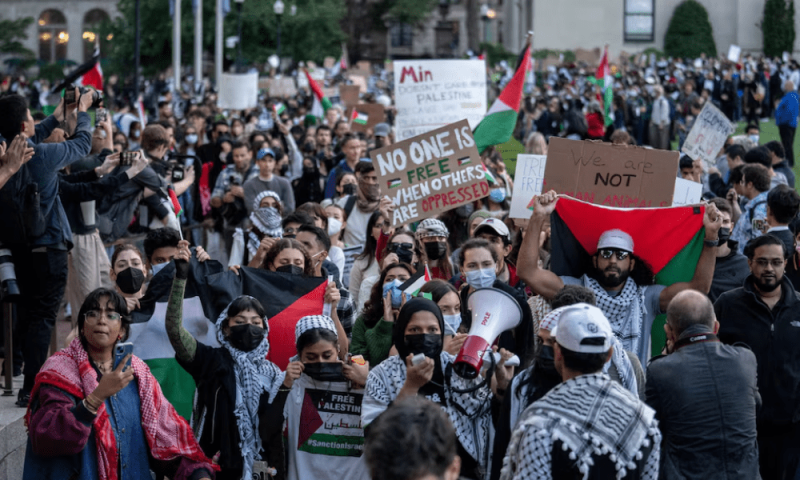The media often portrays Gen Z as entitled and lazy, but these labels are unfounded. This generation is actively driving change and challenging the status quo. Recent months have seen them organize impactful movements that have unsettled those in power. Across American university campuses, anti-war protests have faced police suppression, only to provoke a widespread and unexpected backlash.
Tensions escalated following terror attacks by Hamas, with campuses becoming hotbeds of activism against Israeli violence. Student groups have been suspended, walkouts are common, and universities have become focal points in political campaigns. This discontent isn’t limited to elite universities; a significant portion of young adults sympathize with Palestinians and criticize Biden’s stance on Israel, posing a challenge for his reelection bid.
Gen Z’s engagement in social and political causes is notable, with 70% actively involved globally. Their digital savvy enables them to mobilize and advocate effectively, utilizing platforms like TikTok and YouTube over traditional media. Concerns about their screen time overlook their ability to navigate misinformation and seek diverse perspectives, empowering them to shape narratives and drive change.
The emergence of leaders like Malala Yousafzai and Greta Thunberg, especially women, underscores this generation’s commitment to challenging the status quo. Their mastery of digital tools and understanding of effective communication unsettle established elites, who struggle to keep pace with their activism. Despite pushback, the courage and organization displayed by young activists inspire a new generation of leaders worldwide.
In summary, Gen Z is actively shaping the future, challenging outdated norms, and demanding accountability from those in power. It’s clear that the real problem lies with the adults clinging to outdated systems, not the younger generation leading the charge for change.










